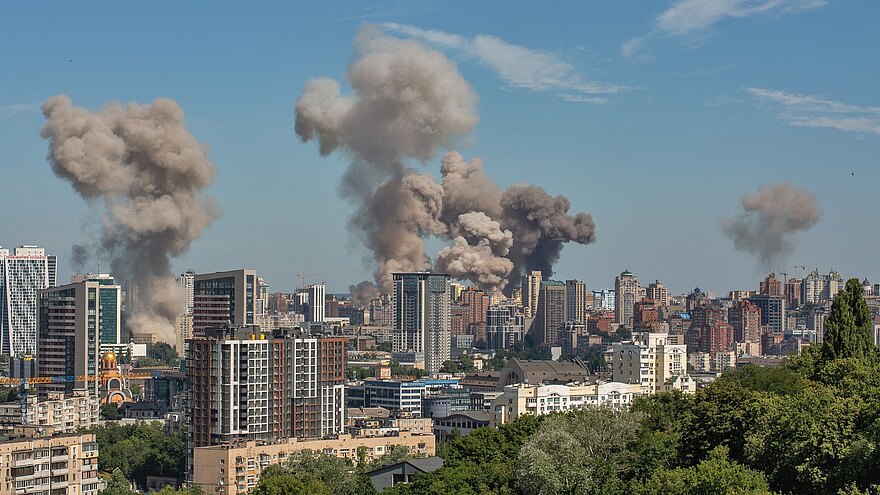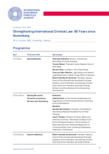Strengthening International Criminal Law: 80 Years since Nuremberg
Eight decades after the beginning of the Nuremberg trial, multilateralism, international law and relevant international and regional human rights frameworks are facing renewed contestation and tremendous pushback. This volatile global reality is also witnessing a surge in the commission of international crimes, asymmetrical and proxy warfare and the use of new technologies that are changing the inherent and conventionally understood nature of warfare.
The Nuremberg Forum 2025 examined strategies for strengthening international criminal law´s development, implementation and enforcement. Drawing lessons from the Nuremberg trials and other pioneering international, regional and domestic proceedings, the panellists reflected on the historical evolution of the law´s foundational norms and procedures. The discussions contextualised the key challenges faced by international criminal law today and elaborate on the role of courts, the UN, states, civil society, survivor communities and other key stakeholders in confronting them. We assembled a distinguished roster of speakers for the event:
The Nuremberg Forum 2025 was composed of an opening discussion, keynote addresses and five panel discussions.
- Opening Discussion: Peace and Justice 80 Years since Nuremberg
- Panel I: Law, States and Individuals
This panel analysed the impact of the expansion of individual criminal responsibility on international law´s approach to the attribution of state and individual responsibility. The discussants also explored the tensions and uncertainties that continue to affect questions of functional and personal immunities, remedies and the the use of force.
- Panel II: Lessons from the Domestic Experience
This panel explored the fundamental lessons and trends that have characterised domestic experience(s) of prosecuting international crimes. The discussions highlighted the innovations and contestations witnessed in the domestic sphere in relation to substance and procedure, intersectional victim-engagement as well as in the proliferation of universal jurisdiction proceedings seen in multiple jurisdictions.
- Panel III: Lessons from the International and Regional Experience
From the ad hoc tribunals to the ICC, international and hybrid courts and tribunals remain among the most visible and potent manifestations of the Nuremberg legacy. The panel focused on their jurisprudence, primary normative and procedural innovations, fair trial guarantees, engagement with victims, witnesses and civil society, as well as the organisational and political considerations that influenced their functioning.
- Panel IV: Reinforcing Frameworks and Cooperation
This panel focused on the international, regional and domestic efforts required to counter pushbacks and faltering support for the ICC and other international and domestic bodies mandated to further accountability for international crimes. The role of mutual legal assistance, technology, the role of “third countries” and local and community engagement was given due consideration.
- Panel V: Legitimacy, Prevention and Universality
The rise in international crimes committed across the world calls into question the preventive function of international criminal justice. This remains the case despite the Rome Statute much like the Torture Convention(s) and the Genocide Convention having an explicitly deterrent objective and purpose. This concluding panel clarified methods to improve international criminal law´s preventive capabilities as well as addressed critiques concerning legitimacy and selectivity that continue to affect its acceptance.
- Closing Discussion: Confronting Totalitarian Pasts: 80 Years since Nuremberg
(km)


